You are here
New Releases
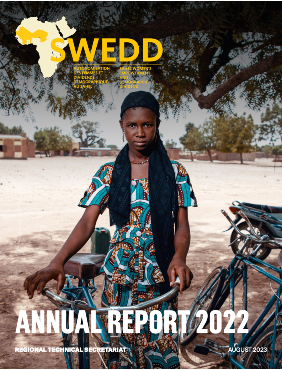
SWEDD Annual Report 2022: Empowering women and building resilience in the Sahel
In 2015, a transformative initiative known as Sahel Women's Empowerment and Demographic Dividend (SWEDD) project was launched in response to a call from the heads of state of Burkina Faso, Chad, Côte d'Ivoire, Mali, Mauritania and Niger. Its mission: to combat gender inequality and strengthen the resilience of adolescent girls and young women in the Sahel region. Over the years, SWEDD has become a powerful tool for regional integration, placing the empowerment of women at the forefront of public policy. It encourages countries to allocate resources to address the vulnerabilities of adolescent girls and young women, with the aim of transforming their lives and contributing to the overall progress of society. SWEDD's success is based on a collaborative partnership between countries and development aid institutions such as the World Bank, UNFPA, the West African Health Organisation (WAHO), the African Union and the French Development Agency (AFD). This partnership has helped to drive change and mobilise resources.
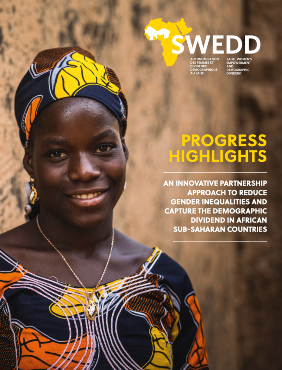
SWEDD: Progress Highlights
The SWEDD (Sahel Women's Empowerment and Demographic Dividend) project is based on the aspiration of an innovative partnership. The project has been meticulously designed as a regional integration initiative, focusing on the economic empowerment of women, the fight against the vulnerability of adolescent girls and young women, and the eradication of gender inequalities in the region, all with the ultimate aim of unlocking the demographic dividend. The World Bank has committed a substantial investment of $680 million in SWEDD in nine countries, supported by the technical assistance of UNFPA at the continental, regional and national levels.
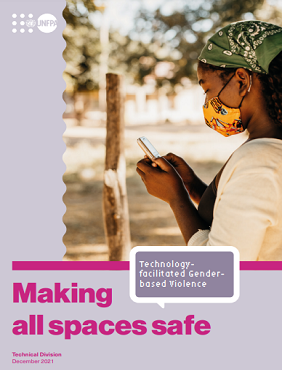
Technology-facilitated Gender-based Violence: Making All Spaces Safe
As the world continues to evolve and expand in the use of technology and platforms, so too does the expansion of spaces through which violence can be perpetrated. This was evidenced no more so than during the COVID-19 pandemic where containment efforts reduced access to information and services driving increased use of technology and online spaces. This paper serves as an alarm bell for the international community, digital and feminist movements, private technology companies and national Governments to act in unison to end the rising scourge of technology-facilitated gender-based violence.
The report is accompanied by the What is technology-facilitated gender-based violence? brochure which can be accessed here.
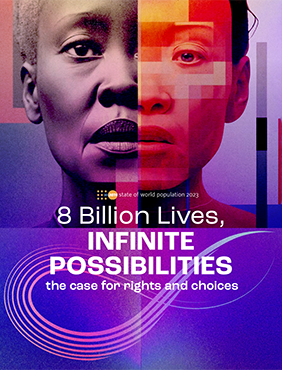
STATE OF WORLD POPULATION REPORT 8 Billion Lives, Infinite Possibilities: The case for rights and choices
The State of World Population report is UNFPA’s annual flagship publication. Published yearly since 1978, it shines a light on emerging issues in the field of sexual and reproductive health and rights, bringing them into the mainstream and exploring the challenges and opportunities they present for international development. This year’s report includes contributions from two UN partners: the International Organization for Migration and the Population Division of the Department of Economic and Social Affairs.

STRENGTHENING RESILIENCE FOR SEXUAL AND REPRODUCTIVE HEALTH IN WEST AND CENTRAL AFRICA
The West and Central Africa regional interventions action plan (2018–2021) focused on supporting and complementing regional and country-level efforts to achieve these aims, all in line with SDGs 3 and 5 and the aspirations of the African Union Agenda 2063.

UNFPA strategic plan 2022-2025
It invites stakeholders worldwide to join UNFPA on its journey to achieve access to sexual and reproductive health for all, realise reproductive rights and accelerate the implementation of the Programme of Action of the International Conference on Population and Development (ICPD). With the 2030 deadline looming to achieve the three transformative results – ending the unmet need for family planning, ending preventable maternal deaths and ending gender-based violence and harmful practices – the pressure is on us to make major strides in a short time.
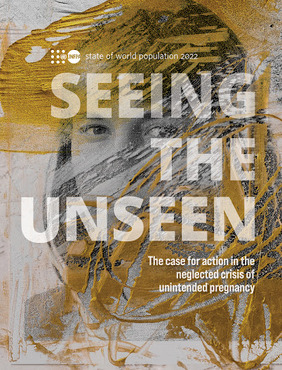
state of world population 2022
This year's report, "Understanding the Unseen: Taking Action to End the Neglected Problem of Unintended Pregnancy," highlights the urgent need to take action to prevent unintended pregnancies. Indeed, worldwide, it is estimated that half of all pregnancies, or 121 million, are not the result of a deliberate choice. 60% of these unwanted pregnancies end in abortion, of which approximately 45% occur in unsuitable conditions, increasing the risk of maternal death. It is estimated that 5-13% of maternal deaths occur as a result of abortion; this has a major impact on the ability of countries to achieve the Sustainable Development Goals.
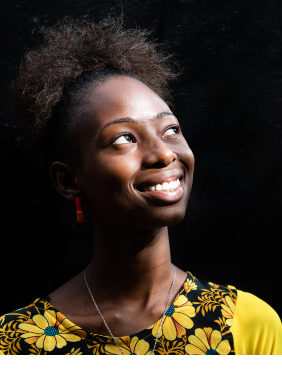
SUMMARY REPORT/ SYMPOSIUM ON MENSTRUAL HEALTH AND HYGIENE IN WEST AND CENTRAL AFRICA
Menstrual health and hygiene (MHH) is a basic right for girls and women, and a key element in achieving gender equality. However, in many settings, particularly in West and Central Africa, women and girls do not have access to reliable, complete and accurate information, nor to adequate sanitation or protective products to allow them to manage their menstruation safely and with dignity. This results in many women being denied their basic human rights during menstruation, in terms of education, health, work, water or dignity in a broader sense.
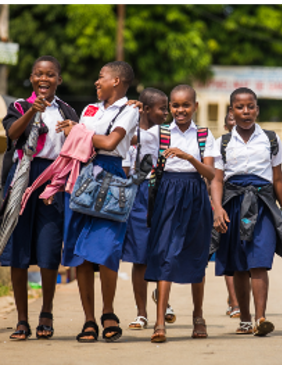
REPORT/ SYMPOSIUM ON MENSTRUAL HEALTH AND HYGIENE IN WEST AND CENTRAL AFRICA
Menstrual health and hygiene (MHH) is a basic right for girls and women, and a key element in achieving gender equality. However, in many settings, particularly in West and Central Africa, women and girls do not have access to reliable, complete and accurate information, nor to adequate sanitation or protective products to allow them to manage their menstruation safely and with dignity.
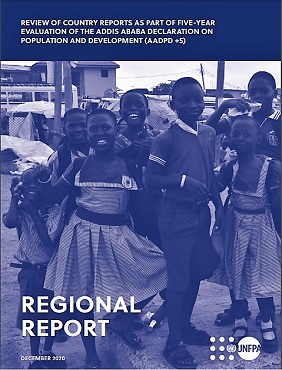
Review of Country reports as part of five-year Evaluation of the Addis Ababa declaration on Population and Developement(AADPD +5)
The Addis Ababa Declaration on Population and Development (AADPD) was adopted by African ministers at the Regional Conference on Population and Development in Addis Ababa in October 2013 and endorsed by heads of state at a meeting of the African Union’s Executive Council the following year. The Declaration provides guidance on population and development in Africa and guidelines for the full implementation of the International Conference on Population and Development (ICPD). Beyond 2014 in Africa (which itself built on the ICPD 1994 Cairo conference).